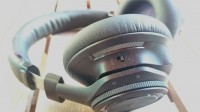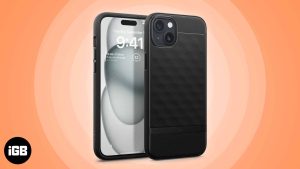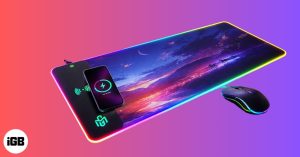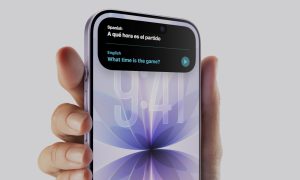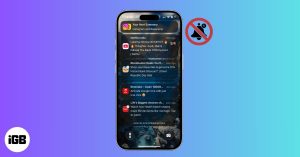Plantronics BackBeat Pro: Wireless headphones you’ll actually want to use
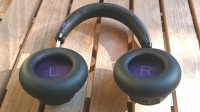
Anyone who’s ever been to a tech expo such as IFA, where Plantronics first showed its BackBeat Pros, knows that the headphone market is an extremely crowded space. Choices abound: Prosumer and high-end headphones from companies such as Sennheiser, all-around, stylish cans like the ones from Beats Audio, and in-ear headphones which come in a zillion flavors.
But there’s one space in the world of headphones that’s not quite overpopulated yet — the Bluetooth, wireless, noise-canceling, over-the-ear headphones. It sounds like a tiny niche, but actually these are the headphones most of us need: Travel-friendly, practical, and potentially great-sounding. Most, however, fail in at least one of those categories, and they’re pretty expensive.
Enter Plantronics BackBeat Pro ($249), a new contender that I’ve been using for the past 10 days. A company best known for its wireless Bluetooth headsets, as well as gaming and in-ear headphones, has pleasantly surprised me with a product that’s probably the best in its class — though still not perfect.
Feature bet
Let’s be clear on one thing: When it comes to features, the BackBeat Pros absolutely kill it in every category. They’re wireless, connected to one or two devices via Bluetooth Smart (aka Bluetooth 4.0 of LE), with a really good range (30 feet and a wall won’t cause problems with the reception). On the right side, you’ll find the on/off switch, a big button for answering a call — with the help of a built-in mic — and a volume knob. On the bottom there’s a button that turns on the mic and lets you hear stuff around you, which is very handy when you notice someone flailing their arms at you, trying to communicate.
The left side sports the active noise cancellation switch, a play/pause button, and a next/previous knob. On the bottom there’s the standard micro-USB charging port, as well as a standard 3.5mm audio cable connector, which, when used, automatically puts the headphones in airplane mode.
The headphones have a sensor that recognizes when you put them on your head, automatically pressing “play” on a connected device. Remove them, and the music automatically stops — amazing for late-night listening sessions, when you get so sleepy that even touching your phone is a chore. You can turn the feature off (or re-calibrate it if it starts acting weird, which it didn’t do to me), but I don’t see why you should. It works great, removing another tiny step that stands between you and your music.
If your phone supports NFC, you can pair it with the headphones with a simple tap on the left side.
The battery has an LED indicator and lasts for 24 hours of wireless listening, according to Plantronics. In my testing, I regularly forgot when I last charged them, and it took several days with long listening sessions to deplete the battery completely.
There is a possible downside to such a rich set of features. For some, simple headphones with no buttons or switches might be preferable. Not so for me: I enjoyed the level of control provided by the BeackBeat Pros, especially the sensor-enabled abilities like the auto-off feature.
Finally, for the price, you get some extras with the headphones as well: A 3.5mm cable, a USB charging cable and a black, padded carrying bag.
The comfort zone
Plantronics are heavy and quite bulky, but extremely comfortable — probably the most comfortable headphones I’ve ever worn. And they have a few nifty design tricks; for example, you can fold them flat and wear them comfortably around your neck, the cans resting on your chest.
But though it’s a matter of personal preference, one thing they aren’t is stylish. A strong competitor in this niche are the Beats Studio Wireless headphones, which are significantly more expensive, but also — let’s be honest — nicer looking than the BackBeat Pros.
Which is not to say that the BackBeat Pros are ugly. They look like something you’d wear at home, and not on the street. It’s a subtle difference, but to many, it’s an important one.
Easy on the ears
I’ve tested the BackBeat Pros against my Creative Aurvana Live — a significantly cheaper ($99), but awesome-sounding pair of headphones. And I wasn’t too surprised when the Aurvana Live sounded better. BackBeat Pros have a slightly distorted sound, with the fuzzy effect extending from bass to treble. They also bring too much bass into the mix, and lack some of the detail provided by the Aurvana Live.
Still, when judged on their own, BackBeat Pros sound good — there weren’t many moments when I pined for a better pair of cans. They’re also slightly better than the significantly more costly Velodyne vQuiet. Add to that that all wireless headphones have sound issues, and you can’t complain too much about them.
I’ve tested the BackBeat Pros with and without a cable, and the sound is very similar, but wireless operation brings a barely audible hiss and an additional level of distortion to the mix. For the best sound, use a cable, but anywhere noisier than a quiet room, and you won’t be able to tell the difference.
For reference, I’ve tested the BackBeat Pros with a healthy diet of the Black Keys, Queens of the Stone Age, The National, Warpaint, 3io and Ani DiFranco, mostly coming from a smartphone. However, I’ve also tested the sound coming from my Denon amplifier, with FLAC-encoded audio as source, just to make sure the MP3 sound compression isn’t clouding my judgement.
Noises off
Noise cancellation, when turned on, will degrade the sound of the BackBeat Pros, and it will not fully mute the conversations around you, but it will almost completely remove the hum of a bus or a plane (I’ve tested them in both). This is pretty much the standard for all noise-canceling cans, but it seemed to me that the BackBeat Pros are amazingly good at reducing humming, droning and other low-pitched sounds to nil.
The Plantronics BackBeat Pro is a serious contender in the (admittedly tiny) wireless, stereo, noise-canceling headphones space. They’ve got tons of features, they’re comfortable, the battery lasts forever, and I’m loving the auto-play/pause sensors. The only strikes against the BackBeat Pro are the slightly bulky look and the sound, which, while not bad, has its flaws. But, hey — no cables!



